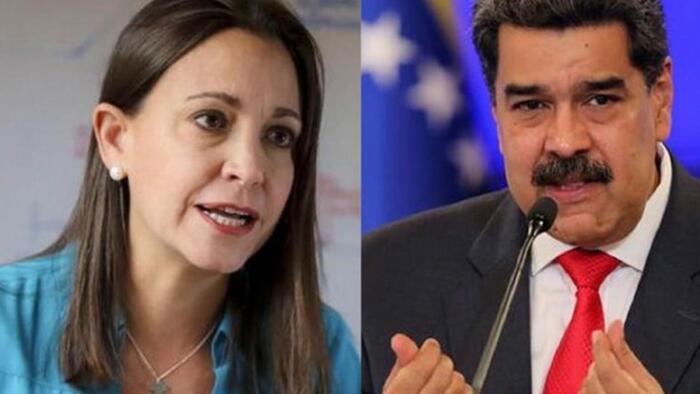


Venezuelan President Nicolas Maduro has condemned Washington placing Caracas in its crosshairs for a newly resurrected 'war on drugs' - which Maduro has said is really all about pursuing regime change.
At a moment of the Pentagon's largest build-up of forces ever off Venezuela's coast, Maduro is calling for an emergency UN Security Council meeting to convene, in order to condemn these "mounting threats" from the United States. This has resulted in diplomats indicating that a meeting is indeed set to take place Friday afternoon in New York.
Venezuela's foreign ministry has said that the US military build-up, and recent strikes against at least four alleged drug-smuggling boats, endangers "peace, security and international and regional stability."
Maduro wants the security council to hold a formal debate on the crisis and "make recommendations to curb any plans of aggression" on Washington's part.
So far, there have been at least 21 deaths reported from the US military intervention in the southern Caribbean, and interestingly Colombia has said at least one of the boats was operated by its own traffickers.
The UN council is likely to pay special attention to the fact that President Trump informed Congress last week in a letter that the US is currently in "armed conflict" with the drug cartels.
The Trump administration has said that in reality Maduro is the de facto leader of these cartels, and so he's not the legitimate leader of resource-rich Venezuela. On this point, the NY Times is out with the following bombshell on Friday:
Venezuelan officials, hoping to end their country’s clash with the United States, offered the Trump administration a dominant stake in Venezuela’s oil and other mineral wealth in discussions that lasted for months, according to multiple people close to the talks.
The far-reaching offer remained on the table as the Trump administration called the government of President Nicolás Maduro of Venezuela a “narco-terror cartel,” amassed warships in the Caribbean and began blowing up boats that American officials say were carrying drugs from Venezuela.
Under a deal discussed between a senior U.S. official and Mr. Maduro’s top aides, the Venezuelan strongman offered to open up all existing and future oil and gold projects to American companies, give preferential contracts to American businesses, reverse the flow of Venezuelan oil exports from China to the United States, and slash his country’s energy and mining contracts with Chinese, Iranian and Russian firms.
However, the report says that President Trump still rebuffed this offer. The consensus is that Secretary of State Marco Rubio's hard anti-Maduro line has prevailed, also in favor of oppositive activist and leader María Corina Machado, who was just awarded the Nobel Peace Price on Friday. The Nobel was awarded, supposedly, as she has kept "the flame of democracy burning".
"Behind the scenes, however, Venezuela’s senior officials, with Mr. Maduro’s blessing, have offered Washington far-reaching concessions that would essentially eliminate the vestiges of resource nationalism at the core of Mr. Chávez’s movement," NY Times continues.
Apparently the US administration is currently more enticed by her own economic pitch. She has argued that only democracy, rule of law, and openness to the international community can truly allow foreign access to Venezuela's resources, and that Maduro will not deliver:
"She argued that even greater economic wealth — $1.7 trillion in 15 years — awaited U.S. companies in Venezuela if her movement launched a political transition. (Ms. Machado was awarded the Nobel Peace Prize on Friday for what the Norwegian Nobel Committee described as “her tireless work promoting democratic rights for the people of Venezuela.”)
It is indeed curious that the Nobel Committee while denying Trump, has chosen to award a person potentially at the center of US regime change policies in Venezuela.
Celebrating "Peace" regime change according to Norway's Nobel committee...
Machado's economic adviser, Sary Levy, argued to the Trump White House that "What Maduro offers investors is not stability, it's control — control maintained through terror." She told the Times, "The Trump Administration has shown a clear intention to not fall for these offers of easy solutions."
